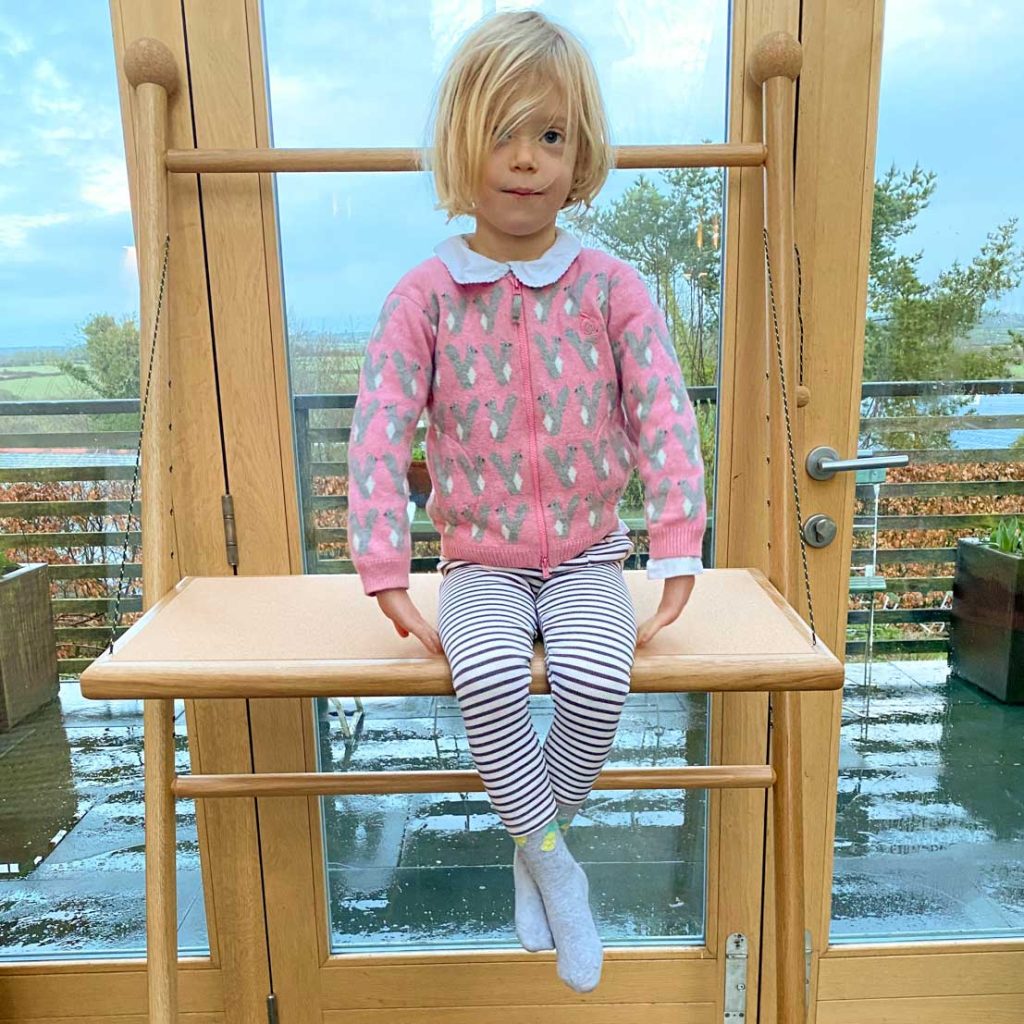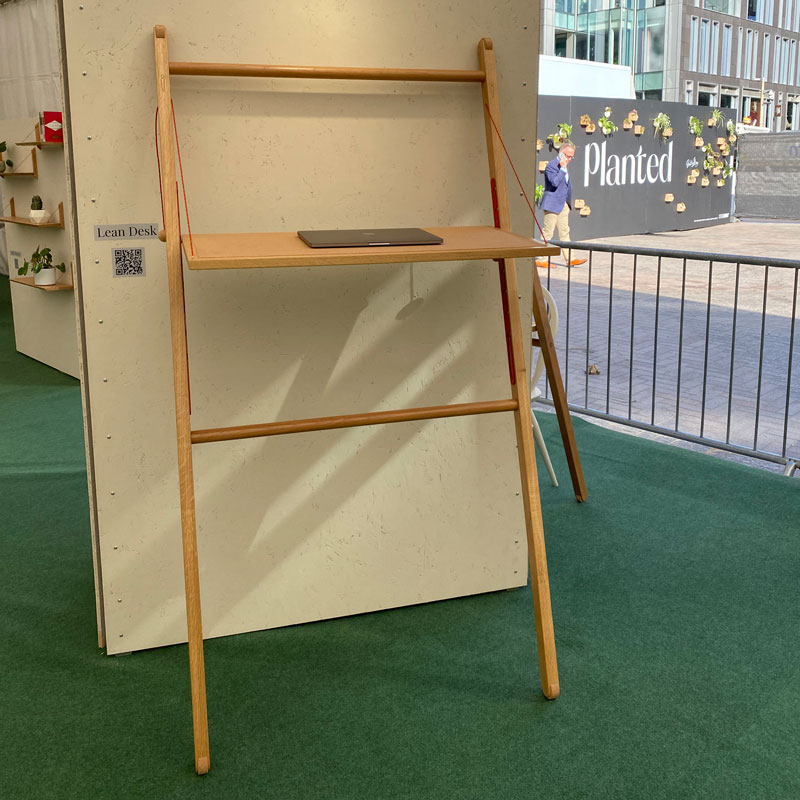
1994 Devon
After leaving university in Manchester (Landscape Architecture) Henry Swanzy embarked on his training in cabinet-making, with great emphasis placed on traditional hand skills and craftsmanship, and a striving for absolute perfection. Hand-cut, double mitre, secret dovetails(!), one of the requisite skill tests.
1999 Swanzy Fine Furniture
Four further years were spent working for established designer makers – all specialising in the making of bespoke fine furniture, before in 1999 Henry established his first workshop in Wiltshire. Designing and making both to commission and speculative ‘gallery’ pieces, maintaining emphasis on the highest quality of craftsmanship and finest hand selected hardwood timbers.


2007 Sculpture
Working with techniques learned from commissioned pieces Henry produced a number of pieces of large free-standing and suspended oak sculpture, which were exhibited around the South of England, including at the Hannah Peschar Sculpture Garden.
2011 MA
Returning to University to study for an MA in Design, focusing on the most sustainable materials pallet took Henry to Falmouth, Cornwall. Researching furniture applications for the most sustainable timbers available, which included coppiced wood, as well as ‘thinned’ timber normally destined for burning as fuel.


2013 Wharves Studio
The studio from where Henry still operates was established in 2013. With enviable views over Falmouth Marina and up the Penryn River, and a colourful mix of creatives and heavy marine industry, boats and the sea are omnipresent.
2014 Pollyfox Table
Hand craftsmanship and a pared back aesthetic combined with nods to Japanese calligraphy and Wabisabi in the Pollyfox trestles, which were stocked by Heals and awarded the Design Guild Mark. Manufactured in-house.



2015 Pollyfox Benches
Complimentary Pollyfox benches were launched and also awarded Design Guild Mark.

2016 Bareppa
Exploring the principles of simple physics becomes an increasing influence on Henrys design process and aesthetic. Three legs, with precisely angled and slotted legs, into which the glass top fits, is what provides all the structural integrity, the bungee loops merely hold the legs in place. A design (foolishly!) sold to Made.com.


2018 Komorebi
In 2018 the concept of ‘biophilic design’ was just emerging, and Komorebi (a design which started out as a modular shelving system) evolved into an incredibly exciting exploration into the science behind it. Colour, and some extraordinary technology AkzoNobel were developing in paint colours, combined with scents, and mutli-sensory experiences were explored within the installation. The Reading University chemistry department were to provide the scents, and cross reference their own database of scents with those collected from a forest environment to emulate and explore the impact on human chemistry. Destined for the then cancelled London Design Festival, it was later selected for a very prominent location (the ‘Blue Zone’) at Cop26 in Glasgow. Time constraints prevented this coming to fruition, and Komorebi’s time sadly came and went!
2019 Fold Shelf
The first exploration into utilising materials from performance marine sport. Dyneema is a material developed for performance dinghy racing is stronger than steel cable, with virtually no stretch, yet as flexible as string. Utilising it in the Fold shelf allowed for an ultimate paring back of the shelf to its most basic functioning parts.


2020 Fold Desk
Expanding the concept of the Fold shelf to desk proportions required different materials. Richlite is an FSC certified paper product of extraordinary strength. With timber ribs providing additional support and minimising bend the Fold desk it was strength tested to carry over 120kg! Folded up and magnetically held in place, it protruded just 40mm off the wall.
2020 Leandesk Prototyping
Could we expand the Fold concept to a) remove the need to wall-mount the desk, and b) make adjustable, between sitting and standing? Exploring dyneema as a material further led to identifying the very small cleats designed to work with very thin ‘ropes’. These would permit the inifinite adjustment options. The hinging/pivot system needed to be designed from scratch with the very specific demands it needed to deliver on, and ensuring that the head and foot could adapt to all angle requirements, while gripping wall and floor.


2021 Quoit for G7
Henry was selected to submit designs for the ‘bi-lateral’ tables for the G7 summit at Carbis Bay. The design referenced the ‘genus loci’ of the ancient landscape of West Penwith. They were to be made from a single windfall oak just 5 miles from the studio, with wedges in the tenons being made from bog-oak recovered from Mounts Bay, and carbon dated to pre 4,000 years BP. Sadly the design was not selected by the then PM!
Sep 2021 Leandesk V1 Launch
Could we expand the Fold concept to a) remove the need to wall-mount the desk, and b) make adjustable, between sitting and standing? Exploring dyneema as a material further led to identifying the very small cleats designed to work with very thin ‘ropes’. These would permit the inifinite adjustment options. The hinging/pivot system needed to be designed from scratch with the very specific demands it needed to deliver on, and ensuring that the head and foot could adapt to all angle requirements, while gripping wall and floor.


May 2022 Hive
Continuing to research sustainable design solutions Henry joined the trial meta course, ‘Wasted: The Masterclass’, written and hosted by Katie Tregidden. Designing product from material otherwise destined to be classified waste Henry produced acoustic tiles named HexBix, made from 93% woodhsavings and cocoa husks. The 7% bonding agent being water based PVA. Hive was exhibited at Clerkenwell Design Week.
Aug 2022 Dezeen
Version 1 longlisted for the international Dezeen Awards.



Sep 2022 Leandesk Oak (V2)
Version 2 replaces the cork mat insert desk with a laminated alternative. The chosen laminate is caron neutral (by off-set) and the yellow option has 50% less phenol than other laminates. It is not a perfect sustainable solution, but the best available, for a component with high demands in terms of durability and functionality.
Oct 2022 Leandesk Bamboo
A material Henry has experimented with significantly over the years. Lean is an amazing application for the material. Its properties serve the design incredibly well, and Lean Bamboo becomes the first self-assembly option, allowing us to further reduce packaging, and offer an even more flexible Lean option, for those who anticipate being on the move.

